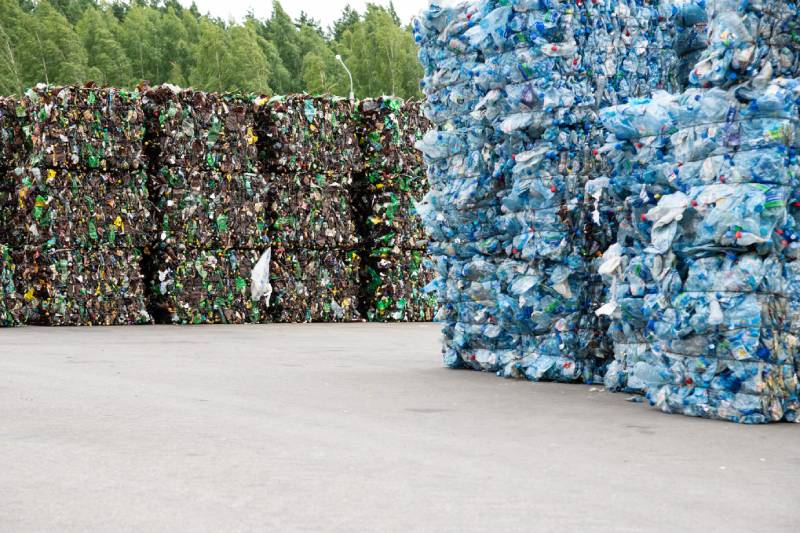Introduction:
Waste management plays a critical role in preserving our environment and promoting sustainability. Among the various methods employed in waste management, roll-off hauling has emerged as an efficient and versatile solution. This procedure entails the utilization of specialized trucks and containers to transport significant volumes of waste materials from construction sites, commercial establishments, and residential areas to designated facilities for disposal or recycling. In this blog, we will delve into the journey of roll-off hauling, exploring its benefits, processes, and contribution to waste management and environmental sustainability.
The Basics of Roll-Off Hauling:
- Specialized Containers:
Roll-off hauling utilizes large, open-top containers known as roll-off dumpsters. These containers are specifically designed to be transported by specialized roll-off trucks equipped with hydraulic systems, enabling effortless loading and unloading processes. - Versatile Applications:
Roll-off hauling is suitable for a wide range of waste materials, including construction debris, demolition waste, industrial waste, and household junk. The versatility of roll-off hauling makes it a preferred choice for various industries and projects.
The Journey of Waste:
Efficient Collection: Roll-off hauling begins with the efficient collection of waste materials. Roll-off dumpsters are delivered to the waste generation site, whether it’s a construction site or a residential area, and strategically placed for convenient and safe waste disposal.
Proper Loading and Securement: Once the roll-off dumpster is in place, waste materials are loaded into the container using machinery or manual labor. It is crucial to ensure proper loading techniques to optimize space utilization and ensure safe transportation. The waste materials are securely contained within the dumpster to prevent any spillage or hazards during transit.
Transportation and Disposal:
Specialized Roll-Off Trucks:
Roll-off hauling relies on specialized trucks equipped with hydraulic systems to transport the loaded dumpsters. These trucks are designed to handle the heavy weight and size of the roll-off containers, providing safe and efficient transportation.
Compliance with Regulations:
During transportation, roll-off hauling operators adhere to all applicable regulations and permits to ensure legal and responsible waste disposal. Compliance with regulations guarantees that waste materials are disposed of at authorized facilities, such as landfills or recycling centers.
Recycling and Resource Recovery:
Roll-off hauling contributes to resource recovery and recycling efforts. Depending on the type of waste materials collected, roll-off haulers may deliver them to recycling facilities for processing and recovery of valuable resources. This step plays a vital role in diverting waste away from landfills and advancing a more sustainable approach to waste management.
Benefits of Roll-Off Hauling:
- Efficient Waste Removal:
Roll-off hauling offers efficient waste removal, particularly for large-scale projects or when dealing with significant volumes of waste. The use of roll-off dumpsters allows for the collection of substantial amounts of waste in a single haul, minimizing the need for multiple trips and optimizing time and resources. - Enhanced Safety and Cleanliness:
By containing waste within the roll-off dumpsters, roll-off hauling contributes to enhanced safety and cleanliness at waste generation sites. It helps prevent hazards, such as loose debris or scattered waste, promoting a safer working environment for construction crews and a cleaner appearance for residential or commercial areas. - Environmental Sustainability:
Roll-off hauling plays a crucial role in environmental sustainability by diverting waste from landfills and facilitating recycling efforts. Through proper waste disposal and resource recovery, roll-off hauling helps conserve natural resources, reduce greenhouse gas emissions, and minimize the environmental impact of waste materials.
Collaboration and Partnership:
Waste Management Companies: Roll-off hauling often involves collaboration with waste management companies that specialize in waste collection, transportation, and disposal. These partnerships ensure that waste materials are handled in compliance with regulations and best practices, promoting efficient and responsible waste management.
Construction and Demolition Projects: Roll-off hauling is particularly vital in construction and demolition projects, where significant amounts of waste are generated. Collaboration between construction companies and roll-off hauling providers helps streamline waste removal processes and ensure the proper disposal of construction debris.
Conclusion:
From waste to wonder, the journey of roll-off hauling demonstrates the power of efficient waste management. By utilizing specialized containers, ensuring proper loading and securement, and employing specialized trucks, roll-off hauling offers an effective solution for waste removal and disposal. Through collaboration, adherence to regulations, and a focus on recycling and resource recovery, roll-off hauling contributes to environmental sustainability and the preservation of our planet. To learn more about roll-off hauling and its role in waste management, visit apjrecycling.com and discover how this process can transform waste into wonder. Collectively, we have the power to create a positive impact in constructing a cleaner and more sustainable future.







